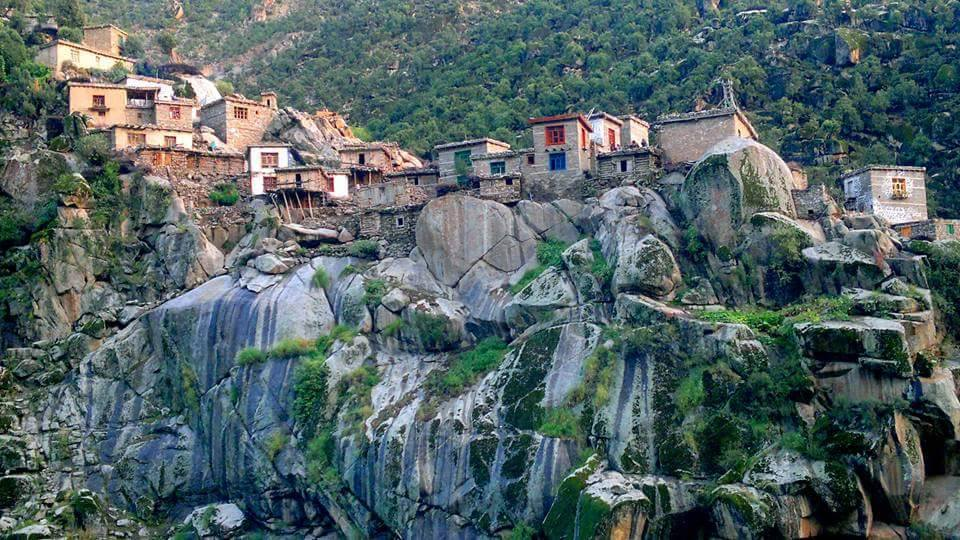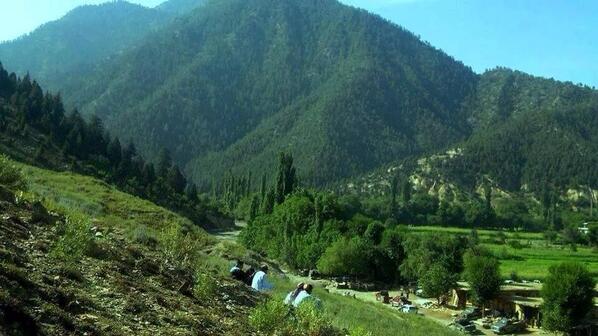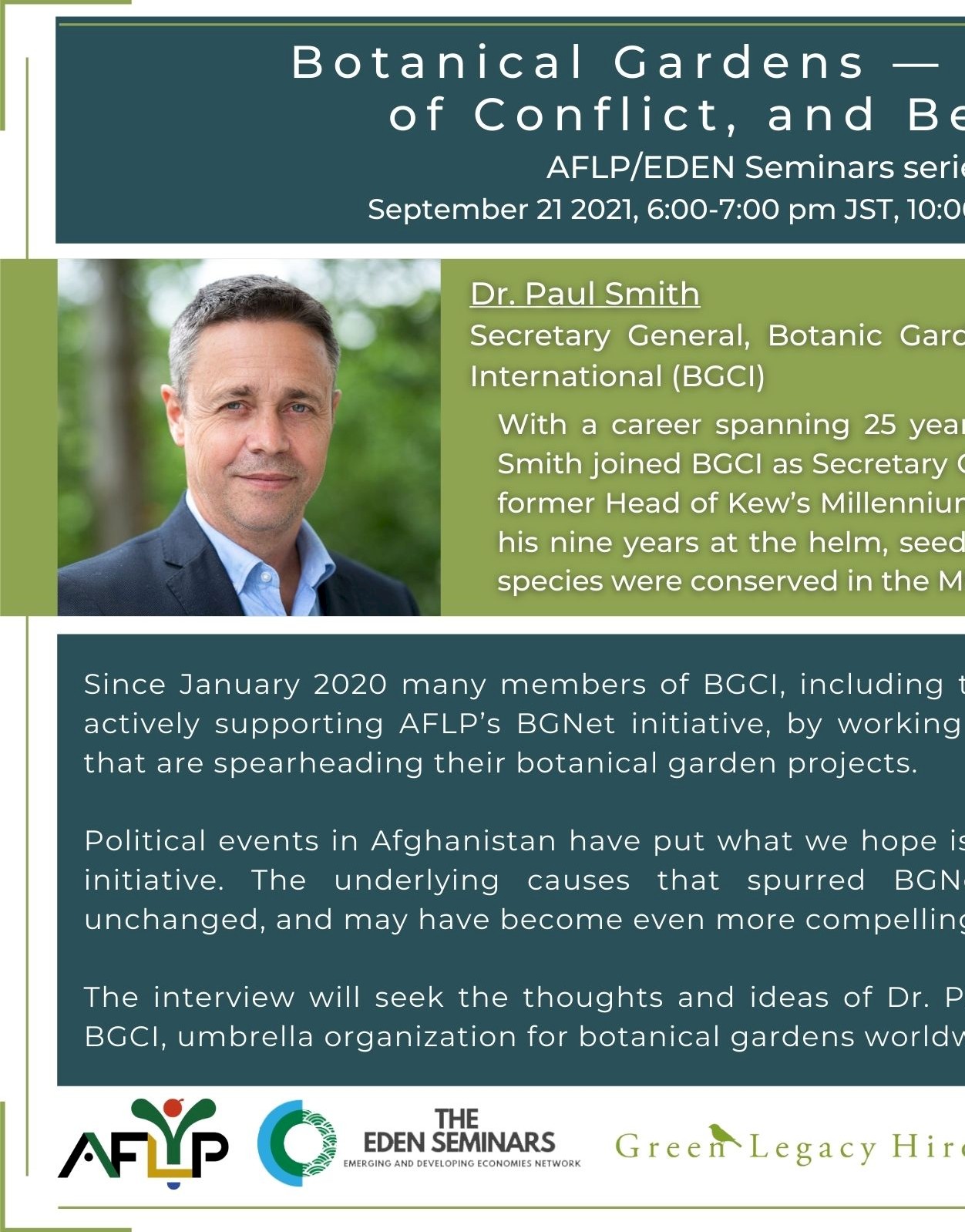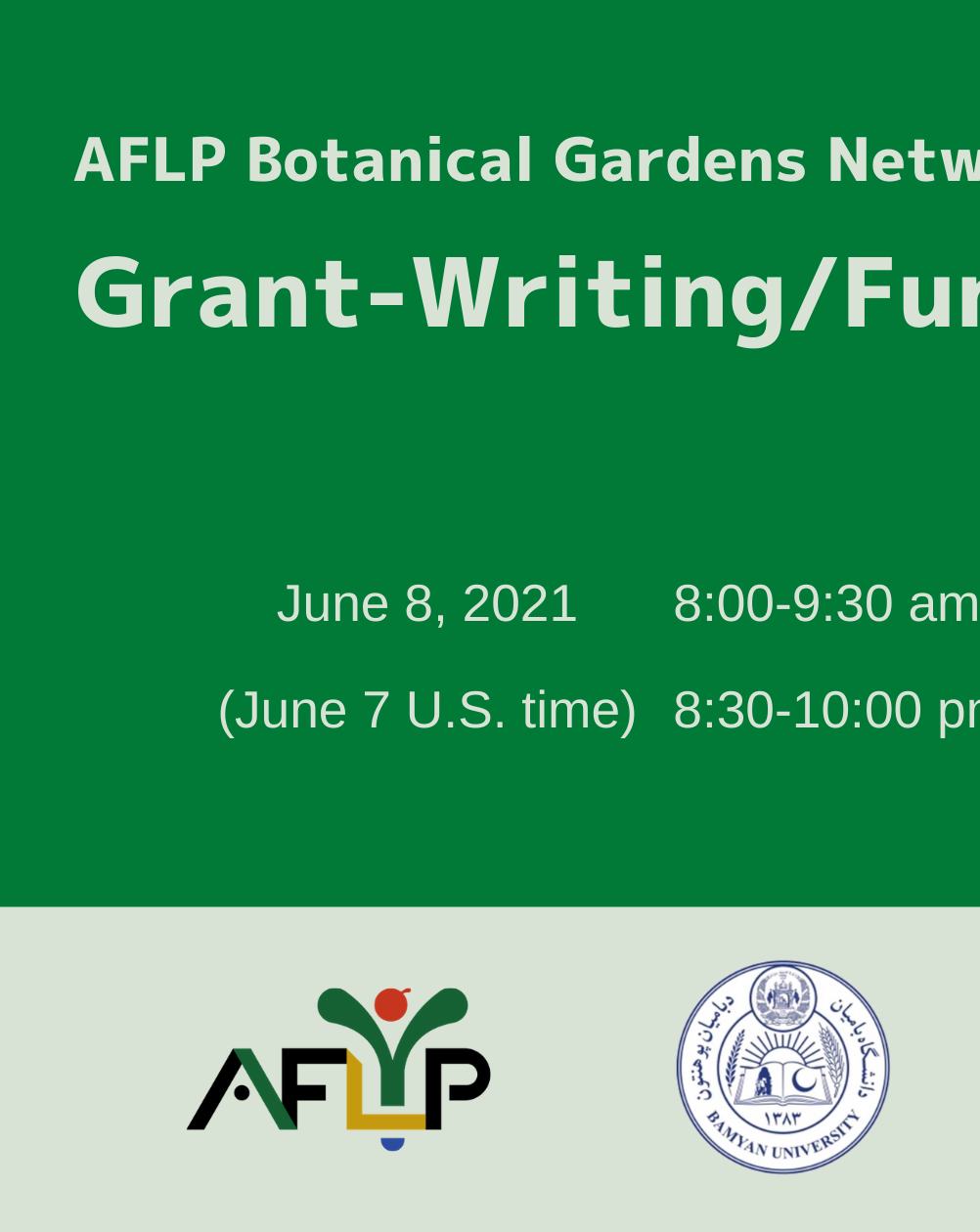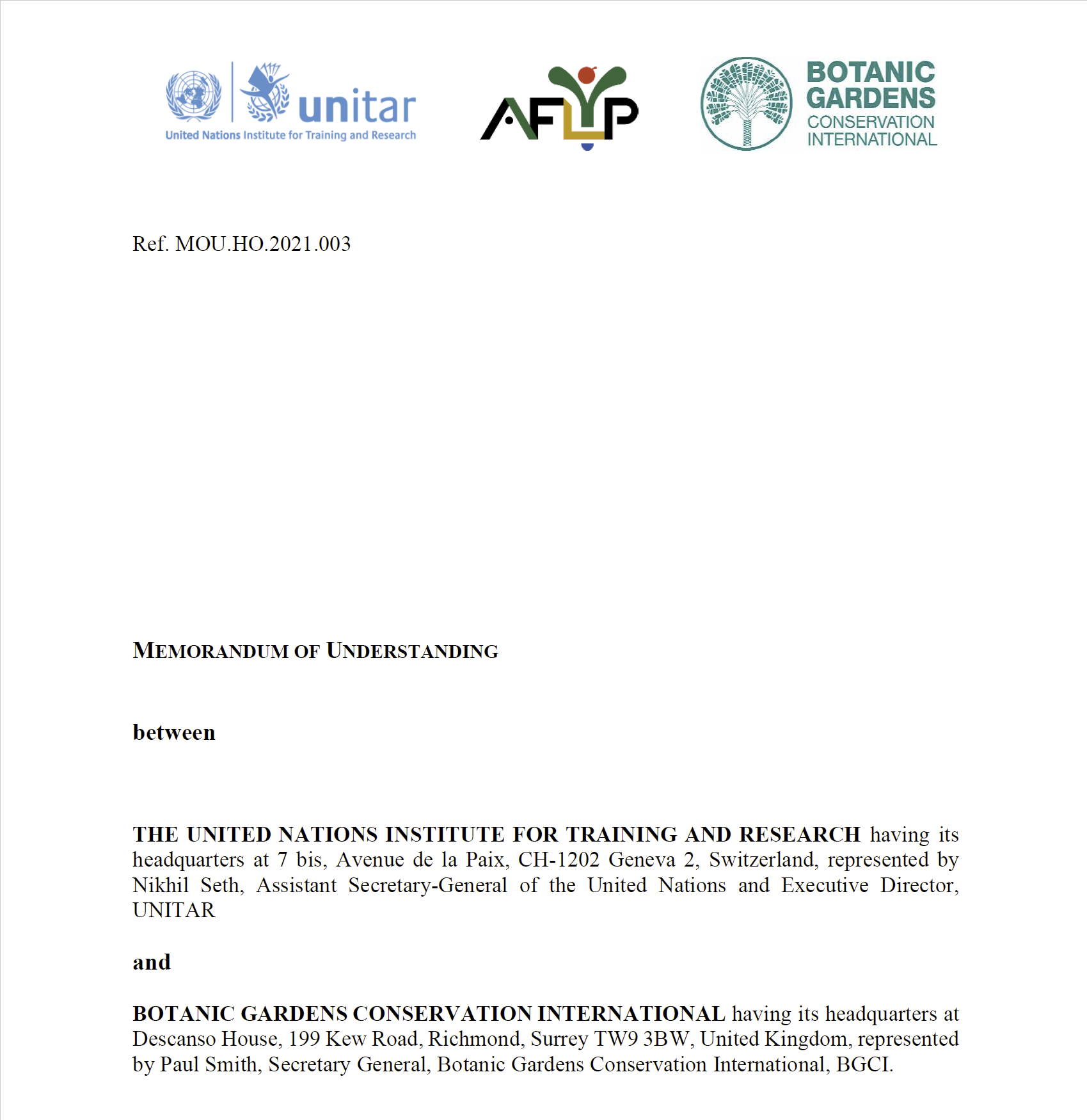BG-Net Activities
Botanical Gardens - In Times of Conflict, and Beyond
21 September 2021
Learn MoreAFLP BG-Net Grant-Writing/Fundraising Workshop I
8 June 2021
Learn MoreThe Afghan Fellowship Legacy Projects (AFLP) is brainchild of three friends and veterans of the UNITAR Hiroshima Fellowship for Afghanistan (hereafter referred to as "AF"), Nassrine Azimi and Humaira Khan-Kamal. When, after its exceptional 15-year run, the Hiroshima Fellowship wrapped up, they felt that the alumni had many experiences to share, an important story to tell, and a unique network upon which to build future projects. The AFLP was thus established, as a pro bono initiative within UNITAR’s Hiroshima Office, and currently consists of two legacy projects ー a Botanical Gardens Network (BG-Net) campaign and a collective book and blog by the AF Community itself.
Book Launch & UNITAR Hiroshima Office 20th ANNIVERSARY ROUNDTABLE held in Hiroshima
June 2023
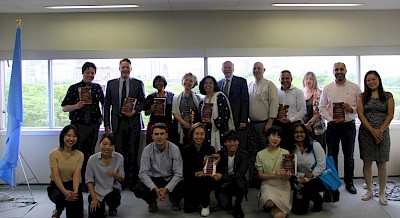
14 July 2023, Hiroshima, Japan – As part of its 20th anniversary celebrations, the United Nations Institute for Training and Research (UNITAR) held a book launch and roundtable to mark the publication of "The UNITAR Hiroshima Fellowship for Afghanistan: An Anthology".
Book Launch Roundtable - Reflections on the Fellowship & Lessons Learned for Post-Conflict Development Initiatives (video recordings)
Additional information
"The UNITAR Hiroshima Fellowship for Afghanistan - An Anthology" was published under AFLP Book project
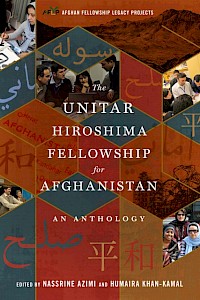
This book is a collection of writings by multiple members of the UNITAR Hiroshima Fellowship for Afghanistan (AF), covering the period since the inception of the Fellowship in 2003, till the present day. It is a story which can upend the current discourses about Afghanistan and shed some light on the opt-repeated question of the recent past-"Was it all a waste?" with important lessons for future development and humanitarian intervention.
The book Introductory Flyer, Cover, Table of Contents and Acknowledgements as well as links to some sites for purchase of the book are available from the link below. The book is available as e-book and paperback at many international book-sellers such as Amazon, Barnes & Noble and Chapters Indigo.
Learn More
Description
To cement the many legacies of the Hiroshima Fellowship for Afghanistan (AF), the Afghan Fellowship Legacy Projects (AFLP) was created in 2019. Its first phase and 5-year period will run from early 2020 to 2025, and currently includes two legacy projects:
I: AFLP Botanical Gardens Network (BG-Net) (Launched January, 2020)
II: AFLP Book (Call for papers launched February 2020)
A small core team (led by Nassrine Azimi) forms the AFLP secretariat, which with the help of numerous partners from Afghanistan, Japan and around the world, sets the overall mission and guides the projects. UNITAR[1], Green Legacy Hiroshima (GLH) and EDEN Seminars [2] networks provide in-kind support to the initiative, notably through administrative and logistical assistance. The UNITAR Hiroshima Office also hosts interns and research assistants (Taiga Nishimura for overall website and BG-Net, and Jenny Xin Luan for Book), to support the work of the AFLP secretariat.
The AFLP Botanical Gardens Network (BG-Net) community leaders work and in-country leadership teams at each university (in-situ partners coordinated by Sabahuddin Sokout) and are shouldered and guided by an international advisory committee, comprising of specialists from the San Diego Botanic Garden, Botanic Garden Conservation International (BGCI), the Denver Botanic Gardens, and other eminent experts. GLH and EDEN Seminar partners and various specialists from around the world, form the extended structure of BG-Net.
The AFLP Book core team and steering committee (coordinated by Humaira Khan-Kamal) is responsible for the overall management of the book project. It is responsible for reaching out to the AF community to facilitate submission of papers, and coordinate and support the manuscript review committee (which includes core faculty members, representatives of mentor groups from Afghanistan and different partner institutions internationally). The steering committee also manages the interface and editorial work with the publishers.
The simple executive structure for AFLP is as follows:
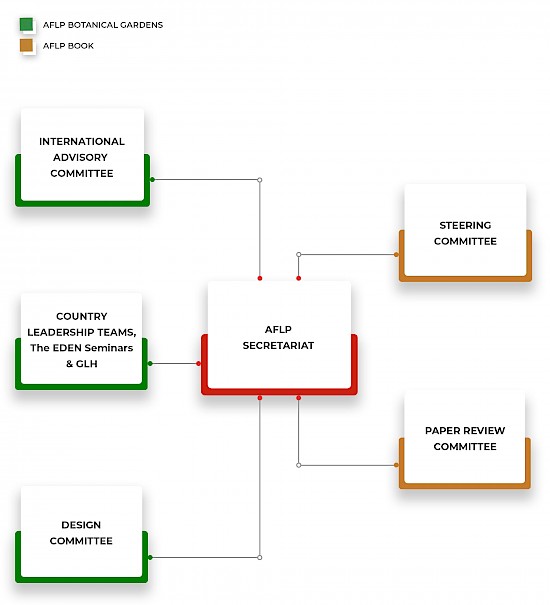 [1] United Nations Institute for Training and Research
[1] United Nations Institute for Training and Research
[2] Emerging and Developing Economies Network (EDEN)
 The AFLP logo was designed and generously gifted to us by Mr. Isshu Fujiwara. The artist statement reads, ‘The blue for the Karez, Afghanistan’s ancient underground canals, the yellow for the arid soils of the country’s high plateaux, the red for promises of seeds and fruits, and the green for trees of life.'
The AFLP logo was designed and generously gifted to us by Mr. Isshu Fujiwara. The artist statement reads, ‘The blue for the Karez, Afghanistan’s ancient underground canals, the yellow for the arid soils of the country’s high plateaux, the red for promises of seeds and fruits, and the green for trees of life.'
Our gratitude to all our friends who made the AFLP website possible. A special thanks to UNITAR’s Hiroshima Office as well as the CIT Support Unit in Geneva — Akiko Perona, Ron Valerio and Justin Araneta, whose talents gave shape to our vision.







